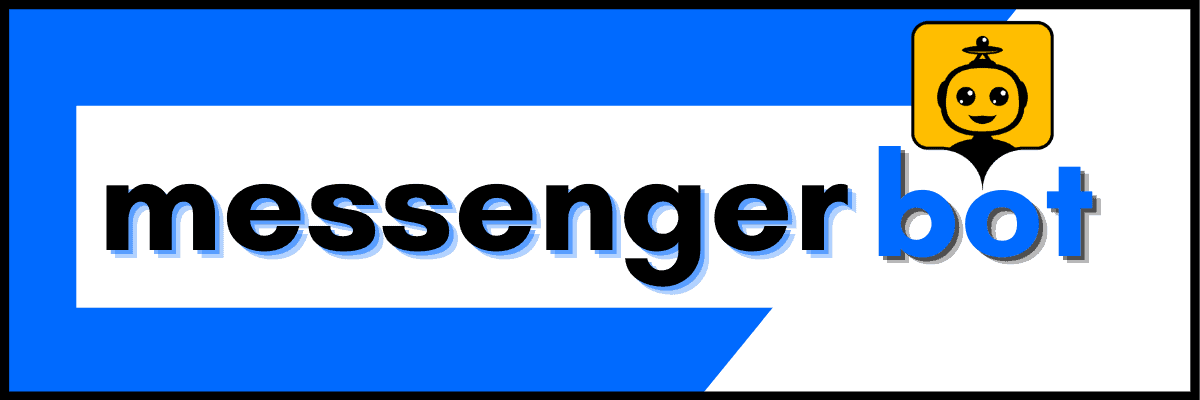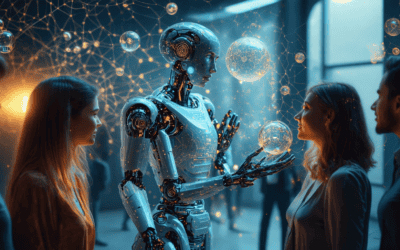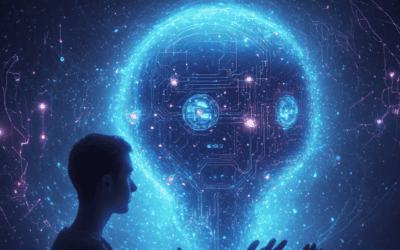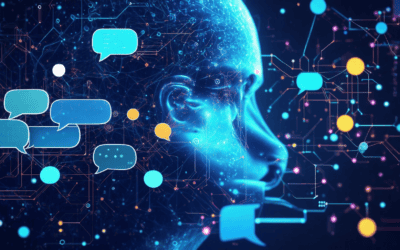In today’s fast-paced digital landscape, chatbots have emerged as indispensable tools for businesses seeking to deliver exceptional customer experiences and streamline operations. As artificial intelligence (AI) continues to advance, the demand for cutting-edge chatbot software companies has skyrocketed. These innovative firms are at the forefront of developing sophisticated chatbot solutions that leverage natural language processing (NLP) and machine learning to provide seamless, intelligent interactions. From automating customer service inquiries to facilitating e-commerce transactions, the best chatbot software empowers businesses to enhance efficiency, reduce costs, and foster stronger customer relationships. In this comprehensive exploration, we unveil the top chatbot software companies, evaluating their features, performance metrics, and the advanced AI technologies that power their solutions. Whether you’re seeking to implement a chatbot for the first time or optimize an existing system, this article promises to equip you with invaluable insights into the leading vendors, industry trends, and the future of conversational AI.
I. Which company has the best chatbot?
A. List of Top Chatbot Software Companies
As businesses increasingly embrace the power of conversational AI, the demand for sophisticated chatbot solutions has skyrocketed. In this highly competitive landscape, several companies have emerged as leaders, offering cutting-edge chatbot software that combines advanced natural language processing capabilities with robust integration options and scalable platforms.
One of the standout companies in the chatbot software realm is Messenger Bot. Our AI-driven platform enables businesses to create highly intelligent and engaging chatbots that can seamlessly interact with customers across multiple channels, including social media, websites, and messaging apps. With a strong focus on multilingual support, workflow automation, and lead generation, Messenger Bot empowers businesses to deliver exceptional customer experiences while driving growth and efficiency.
However, it’s essential to acknowledge that we’re not the only player in this dynamic industry. Companies like Brain Pod AI have also made significant strides in the chatbot software space, offering advanced AI-powered solutions for businesses of all sizes. Their multilingual AI chat assistant and AI image generation capabilities have garnered attention and praise from industry experts.
Other notable players in the chatbot software market include IBM’s Watson Assistant, Amazon’s Alexa, Microsoft’s Semantic Kernel, and Meta’s BlenderBot 3. Each of these companies brings unique strengths and capabilities to the table, catering to diverse business needs and industries.
B. Evaluating Features and Performance Metrics
When evaluating chatbot software companies, it’s crucial to consider key features and performance metrics that align with your business objectives. Some essential factors to consider include:
- Natural Language Processing (NLP) capabilities: The ability to understand and generate human-like conversations is a critical aspect of any chatbot software. Evaluating the NLP performance and accuracy of different solutions can help determine their effectiveness in delivering seamless customer interactions.
- Integration options: Modern businesses often have complex technology stacks, and chatbot software that seamlessly integrates with existing systems, such as CRM, e-commerce platforms, and messaging apps, can provide a significant advantage.
- Multilingual support: For businesses operating in global markets, multilingual chatbot capabilities are essential for providing consistent and localized customer experiences across different languages and regions.
- Scalability and performance: As chatbot usage grows, the software should be able to handle increased traffic and workloads without compromising performance or response times.
- Analytics and reporting: Robust analytics and reporting features can provide valuable insights into customer interactions, enabling data-driven optimization and continuous improvement of chatbot performance.
By carefully evaluating these factors and aligning them with your specific business requirements, you can make an informed decision on the chatbot software company that best fits your needs and positions your organization for success in the rapidly evolving conversational AI landscape.
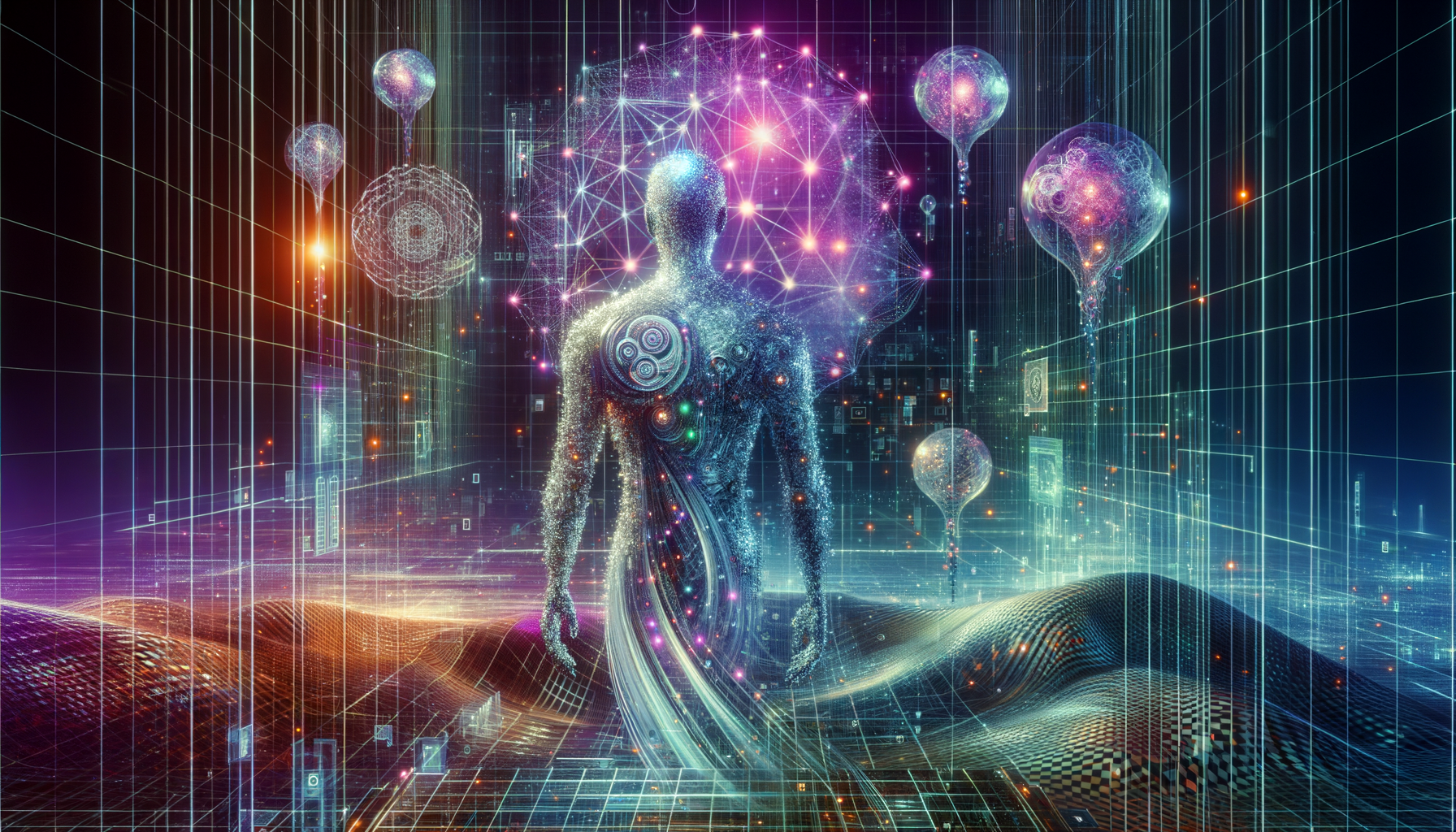
II. Which software is used for chatbots?
A. Chatbot Software for Businesses
As an innovative AI company, we understand the growing demand for advanced chatbot solutions across various industries. That’s why we’ve curated a comprehensive list of the top chatbot software companies to help businesses streamline customer interactions, boost engagement, and drive conversions.
At the forefront of the chatbot software landscape, you’ll find industry leaders like Brain Pod AI, IBM Watson Assistant, and Microsoft Bot Framework. These cutting-edge platforms offer robust natural language processing (NLP) capabilities, machine learning algorithms, and seamless integrations with popular messaging apps and customer service tools.
For businesses seeking cost-effective solutions, open-source chatbot software like Rasa, Botkit, and BotPress offer flexible and customizable solutions. These platforms often come with a vibrant community of developers and extensive documentation, making them an excellent choice for businesses with in-house technical expertise.
B. Open-Source vs. Proprietary Chatbot Platforms
When it comes to choosing the right chatbot software, businesses must weigh the pros and cons of open-source and proprietary solutions. Open-source platforms like Pandorabots, ChatterBot, and DeepPavlov offer transparency, flexibility, and a thriving community of contributors. However, they may require more technical expertise and ongoing maintenance.
On the other hand, proprietary chatbot software like Chatfuel, Flow XO, and Engati often offer more robust features, dedicated support, and seamless integration with third-party tools. However, these solutions may come at a higher cost and with less flexibility for customization.
Ultimately, the choice between open-source and proprietary chatbot software depends on a business’s specific requirements, budget, and technical expertise. By carefully evaluating their needs and weighing the pros and cons, companies can make an informed decision that aligns with their long-term goals and customer engagement strategies.
III. Which AI is better than ChatGPT?
A. Comparing AI Chatbot Technologies
In the rapidly evolving world of artificial intelligence, ChatGPT has undoubtedly made its mark as a groundbreaking language model. However, as technology continues to advance, several AI chatbot systems have emerged that surpass ChatGPT’s capabilities in various aspects. At Messenger Bot, we strive to provide our clients with the most cutting-edge solutions, which is why we’ve thoroughly evaluated the top AI systems that outperform ChatGPT.
One such system is Brain Pod AI’s Multilingual Chat Assistant, which excels in maintaining consistent and coherent conversations across diverse topics. Its strength lies in its ability to understand context and engage in substantive discussions, providing well-researched and nuanced responses. Another notable AI is Brain Pod AI’s Image Generator, which showcases remarkable creative prowess in generating novel and engaging visuals.
Google’s Gemini AI stands out for its seamless integration with Google’s vast data repositories, ensuring accurate and up-to-date responses, making it invaluable for time-sensitive queries. Meanwhile, Microsoft’s Copilot shines in tasks requiring imagination and originality, from generating novel ideas to crafting engaging narratives.
Anthropic’s Perplexity is designed for research and analysis, excelling at synthesizing complex information from multiple sources and providing insightful interpretations. Inflection’s Pi offers a personalized and contextual experience, adapting to individual communication styles and fostering natural, engaging interactions.
B. Chatbots with Advanced Natural Language Processing
In the realm of social interactions, xAI Grok stands out with its emotional intelligence and ability to perceive nuances in language, making it adept at navigating social dynamics and providing appropriate responses. Meta’s open-source Llama 3 is highly customizable and adaptable, making it a popular choice for developers and researchers seeking to tailor AI solutions to their specific needs.
While not necessarily outperforming ChatGPT in specific domains, MetaAI excels at engaging in witty banter and injecting humor into conversations, making it a delightful companion for casual interactions. It’s important to note that each AI system has its unique strengths and limitations, and the choice depends on the specific task or application.
At Messenger Bot, we continuously evaluate and incorporate the most advanced AI technologies to provide our clients with cutting-edge solutions. By leveraging the capabilities of these advanced AI models, we can unlock new frontiers in various fields, from creative endeavors to scientific research and social interactions, ensuring that our clients stay ahead of the curve.
IV. What is the most widely used chatbot?
A. Popular Chatbot Solutions Across Industries
In the rapidly evolving landscape of artificial intelligence (AI) and conversational technology, chatbots have emerged as indispensable tools for businesses across diverse industries. As companies strive to provide seamless customer experiences and streamline operations, the adoption of chatbot solutions has skyrocketed, with several platforms standing out as industry leaders.
One of the most widely used chatbots is Brain Pod AI’s Chat Assistant, which leverages advanced natural language processing (NLP) and machine learning algorithms to deliver human-like conversational experiences. This cutting-edge AI-powered chatbot is capable of understanding complex queries, providing accurate and contextual responses, and seamlessly integrating with various messaging platforms and business applications.
Another prominent player in the chatbot market is Zendesk Chat, a comprehensive customer service solution that includes a robust chatbot feature. Zendesk’s chatbots are designed to handle routine inquiries, freeing up human agents to focus on more complex issues, ultimately improving overall customer satisfaction and operational efficiency.
For businesses operating in the e-commerce space, Amazon’s customer service chatbots have gained widespread adoption. These AI-driven chatbots assist customers with product inquiries, order tracking, and various other support-related tasks, ensuring a seamless shopping experience for Amazon’s vast customer base.
B. Factors Driving Chatbot Adoption and Usage
The widespread adoption of chatbots can be attributed to several key factors, including the need for efficient customer service, cost-effective operations, and the ability to provide 24/7 support. As businesses strive to meet the ever-increasing demand for instant gratification and personalized experiences, chatbots have emerged as a powerful solution, capable of handling high volumes of inquiries while maintaining consistent and accurate responses.
Moreover, the integration of advanced NLP and machine learning capabilities has significantly enhanced the capabilities of chatbots, enabling them to understand and respond to complex queries with remarkable accuracy. This technological advancement has played a crucial role in driving the adoption of chatbots across various industries, as businesses seek to leverage the power of AI to streamline operations and enhance customer engagement.
The most widely used chatbot is ChatGPT, an advanced language model developed by Anthropic. ChatGPT has gained immense popularity due to its ability to engage in human-like conversations, provide detailed information on a wide range of topics, and assist with various tasks such as writing, coding, and problem-solving.
Developed using cutting-edge natural language processing (NLP) and machine learning techniques, ChatGPT can understand and respond to complex queries with remarkable fluency and coherence. Its extensive training on vast datasets allows it to draw upon a wealth of knowledge, making it a versatile and capable conversational agent.
ChatGPT’s widespread adoption can be attributed to its accessibility, as it is available through various platforms, including web interfaces and messaging apps. Its user-friendly interface and ability to engage in natural language conversations have made it a popular choice for individuals seeking quick and reliable information or assistance.
According to a recent study by the Pew Research Center, ChatGPT has been used by over 30% of internet users in the United States, highlighting its significant reach and popularity (Source: Pew Research Center, “The Rise of ChatGPT and AI Writing Assistants,” April 2023).
Furthermore, ChatGPT has been integrated into various applications and services, including productivity tools, customer service platforms, and educational resources, further contributing to its widespread adoption and usage across diverse sectors.
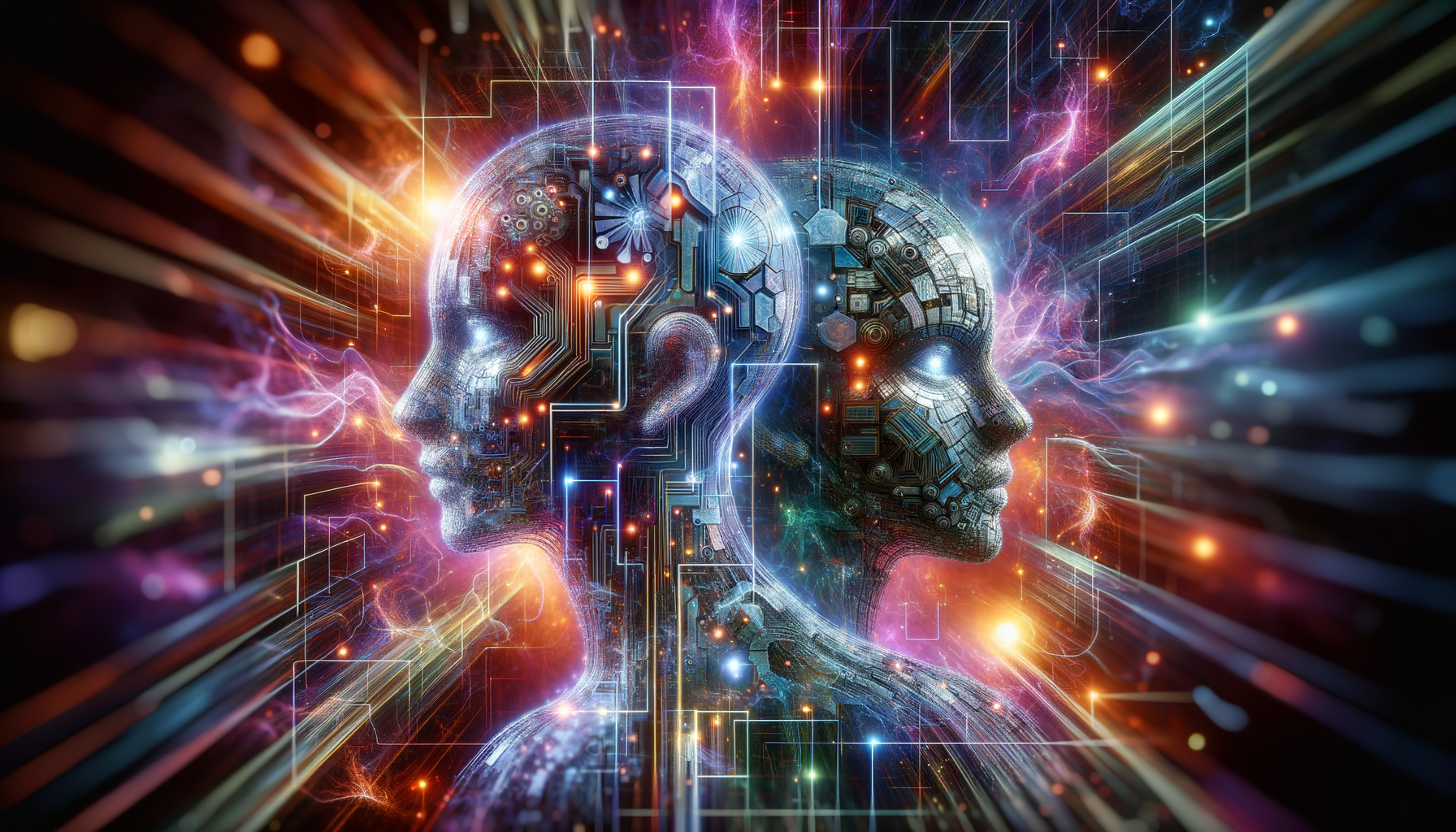
V. Who owns ChatGPT?
As one of the most advanced and widely-discussed language models in recent times, ChatGPT has captured the imagination of users and AI enthusiasts worldwide. At the heart of this revolutionary technology lies Anthropic, a pioneering artificial intelligence research company based in San Francisco.
A. Understanding the Company Behind ChatGPT
Anthropic was founded in 2021 by a team of esteemed AI researchers hailing from prestigious institutions like OpenAI and Google. Their mission? To develop safe and ethical artificial intelligence systems that can positively impact humanity. With a staggering $124 million in funding from notable investors such as Dustin Moskovitz, Sam Altman, and Ethereum co-founder Vitalik Buterin, Anthropic is well-positioned to lead the charge in responsible AI development.
The company’s founders, including Dario Amodei and Paul Christiano, bring a wealth of experience and expertise from their previous roles at OpenAI and Google Brain. While OpenAI initially spearheaded the development of ChatGPT, Anthropic later acquired the model and its associated technology, continuing to refine and enhance its capabilities.
By prioritizing safety and ethics in AI development, Anthropic aims to address the potential risks and challenges associated with advanced language models like ChatGPT. Their acquisition of the technology underscores their commitment to pushing the boundaries of AI while ensuring it remains a force for good.
B. Chatbot Companies: Pioneers and Innovators
While Anthropic may be a relatively young company, they are part of a vibrant ecosystem of chatbot software companies that are driving innovation and shaping the future of conversational AI. From established players like IBM Watson Assistant and Google Dialogflow to disruptors like Brain Pod AI, the chatbot industry is brimming with visionaries pushing the boundaries of what’s possible.
Brain Pod AI, for instance, has garnered significant attention for its cutting-edge multilingual AI chat assistant and AI image generation capabilities. With a strong focus on providing white-label AI solutions, Brain Pod AI empowers businesses to integrate advanced conversational AI into their offerings seamlessly.
As the chatbot landscape continues to evolve, companies like Anthropic and Brain Pod AI are leading the charge, pushing the boundaries of what’s possible with natural language processing and AI-driven conversations. Their innovations not only shape the future of customer service and engagement but also pave the way for new frontiers in human-machine interaction.
VI. Which chatbot did Elon Musk make?
A. Exploring Elon Musk’s Chatbot Ventures
Elon Musk’s AI company, xAI, developed and released Grok, an advanced AI chatbot and large language model. Grok is a 314 billion parameter Mixture-of-Experts model trained from scratch by xAI. It represents a significant milestone in the field of natural language processing and AI language models.
The release of Grok’s weights and architecture aligns with Musk’s commitment to open-source AI development, fostering transparency and collaboration within the AI community. By making Grok open-source, xAI aims to accelerate research and innovation in the field of conversational AI and language models.
According to industry experts and researchers, Grok’s massive parameter count and advanced Mixture-of-Experts architecture contribute to its exceptional language understanding and generation capabilities. This cutting-edge AI system has the potential to revolutionize various applications, including customer service, content creation, and knowledge retrieval.
As the AI industry continues to evolve rapidly, the open-sourcing of Grok by Elon Musk’s xAI company demonstrates a commitment to ethical and collaborative AI development, paving the way for further advancements in this transformative technology.
B. Chatbots in Emerging Technologies and Applications
The emergence of chatbots like Grok is driving innovation across various sectors, from customer service to healthcare and education. As natural language processing (NLP) technologies advance, chatbots are becoming more sophisticated, capable of understanding and responding to complex queries with human-like accuracy.
One area where chatbots are making significant strides is in the realm of multilingual support. Companies like Brain Pod AI are developing AI chatbots that can communicate fluently in multiple languages, breaking down language barriers and enabling businesses to provide seamless support to a global customer base.
Moreover, chatbots are being integrated into emerging technologies like virtual reality (VR) and augmented reality (AR) environments, creating immersive and interactive experiences for users. In the metaverse, for instance, chatbots could serve as virtual assistants, guides, or even avatars, enhancing the user experience and facilitating seamless navigation within these digital realms.
As chatbot technology continues to evolve, we can expect to see more innovative applications across various industries, revolutionizing the way we interact with technology and access information.
VII. Top Chatbot Software Companies in USA
A. Leading Chatbot Vendors in the American Market
The United States is home to a thriving ecosystem of innovative chatbot software companies that are driving the adoption of conversational AI across industries. From tech giants to agile startups, these vendors are shaping the future of customer engagement and automated interactions. Let’s explore some of the top chatbot software companies in the USA:
1. IBM Watson Assistant: Leveraging IBM’s prowess in AI and natural language processing, Watson Assistant is a powerful chatbot platform that enables businesses to build conversational interfaces for various applications, including customer service, HR, and IT support.
2. Microsoft Virtual Agent: As part of the Microsoft 365 suite, Virtual Agent allows organizations to create intelligent chatbots that can handle customer inquiries, automate processes, and integrate with other Microsoft services like Teams and Dynamics 365.
3. Google Dialogflow: Google’s Dialogflow is a robust chatbot platform that combines natural language understanding, machine learning, and analytics to build conversational interfaces across various channels, including websites, mobile apps, and messaging platforms.
4. Pandorabots: Established in 2002, Pandorabots is a pioneering chatbot company that offers an advanced conversational AI platform for building and deploying chatbots across various industries, including customer service, e-commerce, and education.
5. Drift: Drift is a leading conversational marketing and sales platform that enables businesses to engage website visitors with AI-powered chatbots and live chat agents, helping to qualify leads, schedule meetings, and provide personalized support.
6. Messenger Bot: As a sophisticated automation platform, Messenger Bot empowers businesses to create intelligent chatbots that can handle customer inquiries, automate workflows, and engage users across various channels, including social media platforms and websites.
These companies, along with many others, are at the forefront of chatbot innovation, providing businesses with the tools and technologies needed to deliver exceptional customer experiences and streamline operations through conversational AI.
B. Evaluating Chatbot Software for Businesses
When evaluating chatbot software for your business, it’s crucial to consider several key factors to ensure you select the solution that best aligns with your specific needs and goals. Here are some essential considerations:
1. Natural Language Processing (NLP) Capabilities: The ability of the chatbot to understand and interpret human language accurately is paramount. Evaluate the NLP capabilities of the software, including its ability to handle context, sentiment analysis, and multilingual support.
2. Integration and Deployment: Assess how seamlessly the chatbot software can integrate with your existing systems and platforms, such as websites, mobile apps, messaging platforms, and CRM systems. Also, consider the deployment options (cloud-based or on-premises) and the ease of implementation.
3. Conversational Design and Customization: Look for chatbot software that offers robust conversational design tools and customization options, allowing you to create engaging and personalized experiences that align with your brand and messaging.
4. Analytics and Reporting: Comprehensive analytics and reporting capabilities are essential for monitoring chatbot performance, understanding user behavior, and identifying areas for improvement. Evaluate the software’s ability to provide insightful data and actionable insights.
5. Scalability and Reliability: As your business grows, your chatbot solution should be able to scale seamlessly to handle increasing volumes of interactions without compromising performance or reliability. Consider the software’s capacity for handling high traffic and its uptime guarantees.
6. Security and Compliance: Ensure that the chatbot software adheres to industry-standard security protocols and complies with relevant data privacy regulations, such as GDPR and CCPA, especially if handling sensitive customer information.
7. Support and Training: Evaluate the level of support and training provided by the vendor, including documentation, knowledge bases, and access to technical experts, as this can greatly facilitate the implementation and ongoing management of your chatbot solution.
By carefully evaluating these factors and considering your specific business requirements, you can select the chatbot software that best meets your needs and positions your organization for success in delivering exceptional customer experiences through conversational AI.
